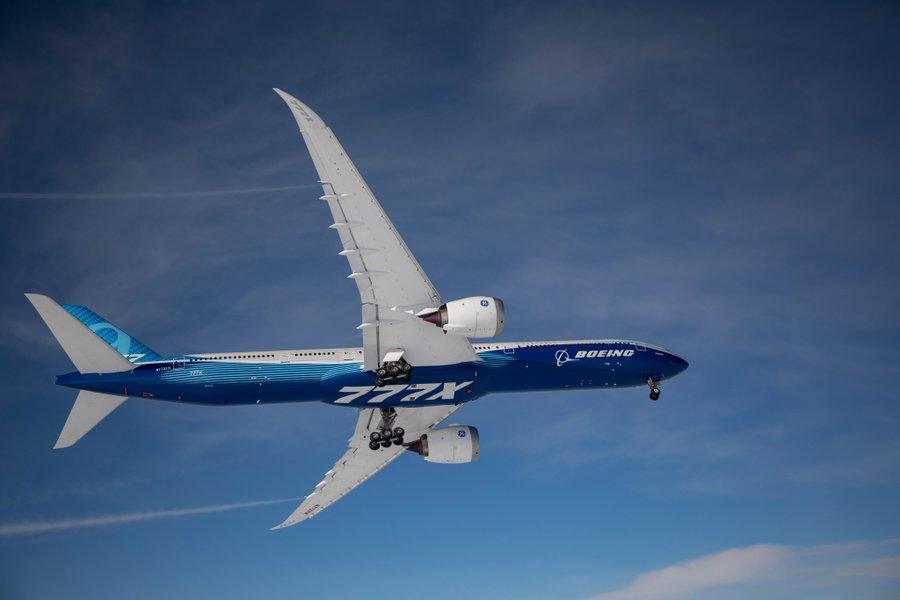
Boeing called for the U.S. government to provide a minimum of $60 billion in aid to the aerospace manufacturing community in response to the COVID-19 coronavirus crisis that has cratered air travel and could trigger a worldwide recession.
“This will be one of the most important ways for airlines, airports, suppliers and manufacturers to bridge to recovery,” Boeing said in a late March 17 statement. “Funds would support the health of the broader aviation industry, because much of any liquidity support to Boeing will be used for payments to suppliers to maintain the health of the supply chain,” the Chicago-based company continued.
Negotiations between the Trump administration and lawmakers continue in Washington, according to regular press announcements by officials and congressional leaders. The administration pitched a roughly $1 trillion stimulus package idea to Congress earlier March 17 as part of a third wave of virus-response legislation.
Boeing claimed the long-term outlook for the aerospace industry “is still strong, but until global passenger traffic resumes to normal levels, these measures are needed to manage the pressure on the aviation sector and the economy as a whole.”
Boeing called for the aid in public and private liquidity, including loan guarantees. The plea rivals many others from across the aviation world currently bombarding Capitol Hill. The Aeronautical Repair Station Association, which represents U.S. aviation repair stations, also on March 17 asked for $11 billion in grants and loans and a tax credit to help offset an anticipated slowdown in aftermarket work. U.S. airlines are asking for $58 billion in financial relief, while U.S. airports have made a pitch for $10 billion.
Without identifying the Boeing bid or others, Aerospace Industries Association (AIA) president and CEO Eric Fanning soon followed with a statement of support. “Few industries are more inextricably linked to our nation’s continued success and global competitiveness than aerospace and defense,” he said. “Right now, extraordinary challenges to our workforce and our heavily integrated supply chain are reverberating across America’s industrial base, which in turn, is having a major and measurable impact on our economy.”
AIA called for a “temporary injection of public and private investment” to boost liquidity, or cash flow, as the supply chain deals with COVID-19’s impact. The trade group further argued the administration and the Pentagon should designate national security programs and workforce as essential to deliver defense products and services. Also, AIA wants federal leaders to issue guidance for the government contracting community to accelerate payments, obligations and contract awards.


Comments